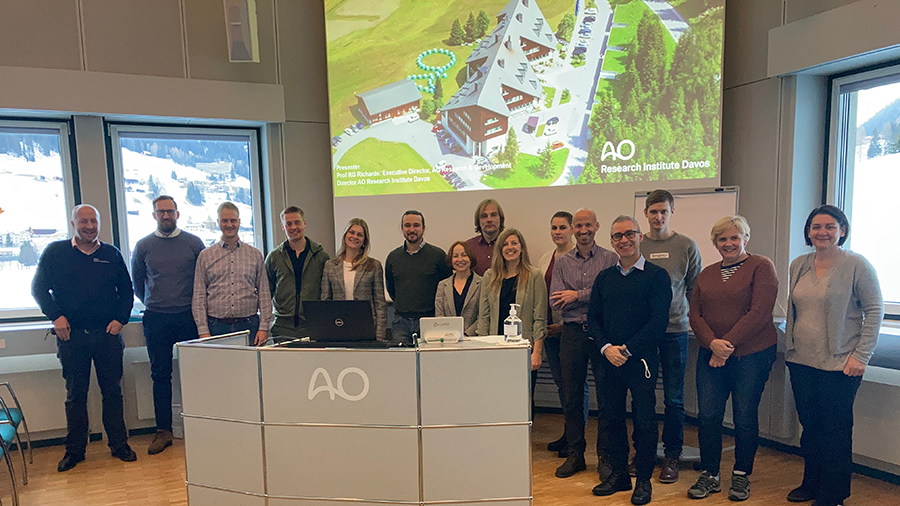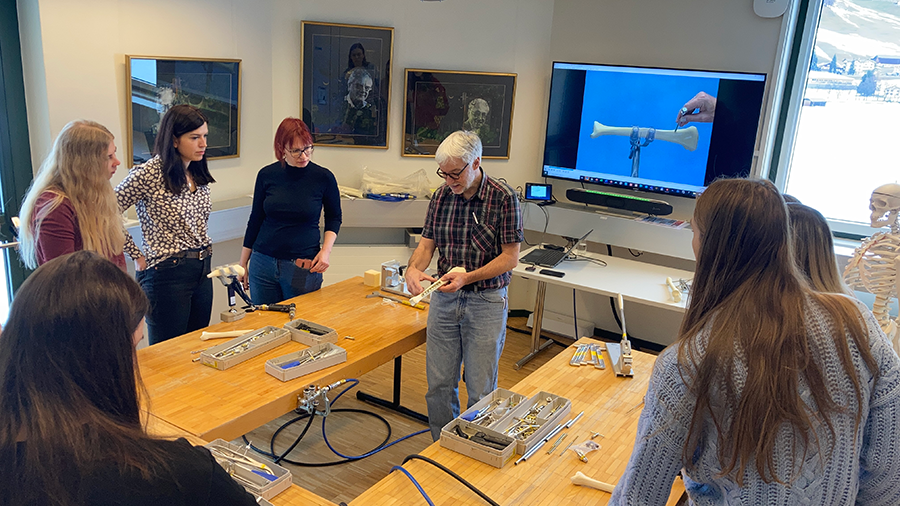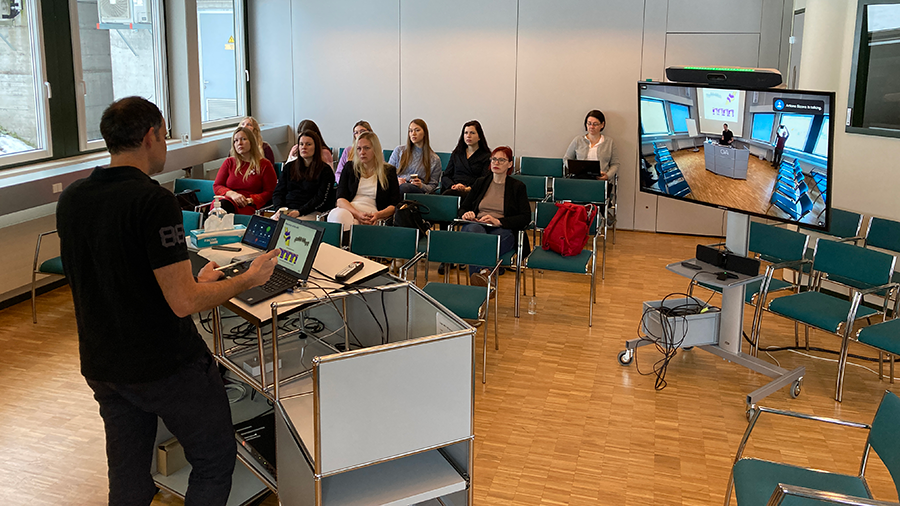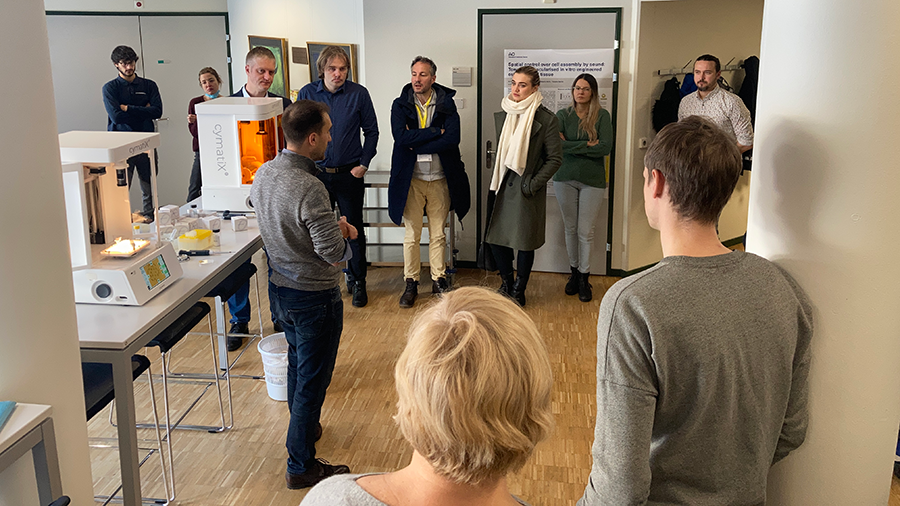Building research excellence through strategic collaboration

As part of the Baltic Biomaterials Centre of Excellence (BBCE), ARI is supporting the establishment of a joint center for advanced biomaterials development in Latvia.
BBCE representatives’ first short-term, on-site visits to ARI took place in late November and early December 2021. Based in the Latvian capital of Riga, the BBCE is a project dedicated to the establishment of a joint center for advanced biomaterials development. It involves, in addition to ARI, universities and research institutes from Latvia and Germany.
The BBCE's primary objective is to build research capacity in the Baltic area. Apart from a wide variety of subject-specific topics including soft biomaterials research, drug delivery, and 3D biomaterials printing, the project covers more general research-related areas such as lab management, quality control systems, and intellectual property management. Knowledge transfer mainly takes place through networking activities, research staff exchanges, and collaborative research.
"I think the visit went very well, especially because the impact of the COVID-19 pandemic has made on-site visits somewhat difficult," says Dr Matteo D'Este. As leader of ARI's Biomedical Materials focus area, D'Este oversees ARI's contribution to the BBCE together with Nora Goudsouzian, focus area leader Tissue Morphology, and Prof Mauro Alini, vice director and founder of ARI's Regenerative Orthopaedics program.
"Smaller and more informal settings often allow for a much better exchange of information and ideas than formal talks," D'Este says. "Naturally, this works much better in person than virtually."
Two separate delegations spent eight and ten days in Davos, respectively. Visitors included Project Coordinator Prof Janis Locs from the Riga Technical University (RTU), together with work package leaders Prof Dagnija Loca (RTU) and Prof Arita Dubņika (RTU). Also visiting ARI were scientific group leaders Prof Kristaps Kļaviņš (RTU), Dr Antons Sizovs from the Latvian Institute of Organic Synthesis (LIOS), Prof Agnese Brangule from the Riga Stradins University (RSU), and Prof Laura Neimane from the Riga Stradins University Institute of Stomatology (RSU IS).
During their visits to ARI, the BBCE delegations focused on topics such as project writing, project partner search, and 3D image-based planning and analysis. Another emphasis was on research metrics and ethics, presented by Prof Martin Stoddart, ARI program leader Regenerative Orthopaedics. "Interaction between institutes and Universities all over the world is key in science. Grants such as this are an excellent mechanism to foster collaboration and exchange expertise,” Stoddart explains.
“If you're building a center of excellence, you need to be able to appraise the researchers' performance in order to actually measure the eponymous excellence," adds D'Este. "We also talked a lot about what you might call soft skills for researchers. It may not seem obvious, but it's actually an important part of the overall package of building research capacity."
Due to the COVID-19 pandemic, no BBCE group or task leader had been able to visit Davos in person since the start of the project in January 2020.
"After two years of meeting online, it was really nice to finally welcome our colleagues from Riga here in Davos," Goudsouzian said.
"Projects like this one require a lot of organizing, so having them here in person was very rewarding, not least on a personal level," added D'Este.
Short term visits such as those in November and December, as well as longer-term visits by Latvian researchers to ARI, will continue throughout 2026.
The BBCE is funded in equal parts by the European Union’s Horizon 2020 research and innovation program GA:857287 and the Latvian government. It is based on a long-term strategic cooperation between four Latvian universities—RTU, LIOS, RSU, and RSU IS—as well as Friedrich-Alexander University (FAU) of Erlangen-Nuremberg, Germany, and ARI.



.png?h=506&iar=0&w=900&rev=ba9e8140f3db487e8d86dea3be48bea6)

